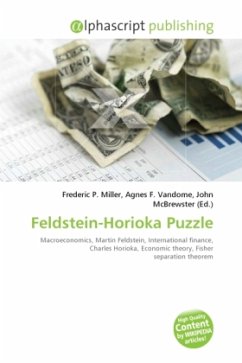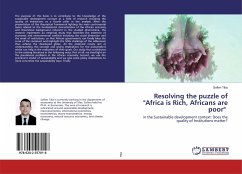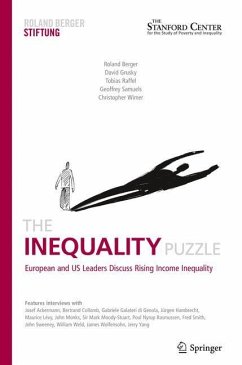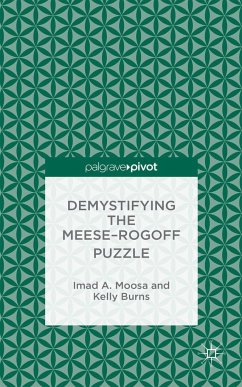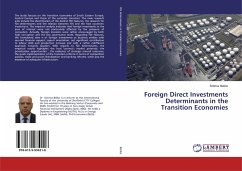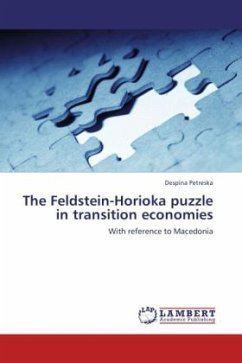
The Feldstein-Horioka puzzle in transition economies
With reference to Macedonia
Versandkostenfrei!
Versandfertig in 6-10 Tagen
32,99 €
inkl. MwSt.

PAYBACK Punkte
16 °P sammeln!
One of the most famous puzzles in economics is the one of Martin Feldstein and Charles Horioka, who in their seminal paper from 1980 in the Economic Journal showed that in conditions of perfect mobility of capital, there is high correlation between domestic savings and investment. This result is inconsistent with the theory of perfect capital mobility, according to which there should be no link between domestic savings and investment: domestic savings will require the best opportunities for investment and domestic investment will be financed by international financial funds. The objective of t...
One of the most famous puzzles in economics is the one of Martin Feldstein and Charles Horioka, who in their seminal paper from 1980 in the Economic Journal showed that in conditions of perfect mobility of capital, there is high correlation between domestic savings and investment. This result is inconsistent with the theory of perfect capital mobility, according to which there should be no link between domestic savings and investment: domestic savings will require the best opportunities for investment and domestic investment will be financed by international financial funds. The objective of this study is to investigate the existence of the Feldstein and Horioka puzzle in transition countries that are part of three groups: Southeast Europe (SEE), Central and Eastern Europe (CEE) and the Commonwealth of Independent States (CIS), with special reference to Macedonia. The main conclusion from the empirical analysis is that the puzzle of Feldstein and Horioka exists in all three panels of countries, including Macedonia, but the relation between saving and investment is generally lower than 1.



